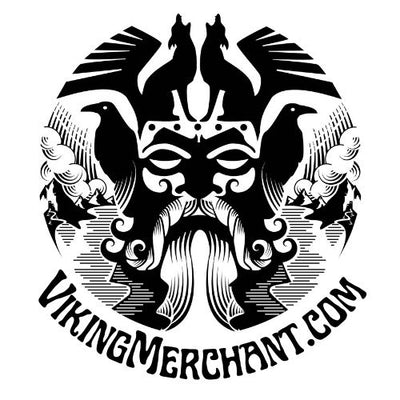The Extended Family, a Pillar of Viking Society
Posted by Amber Lee on
The concept of 'family' in the Viking age extended far beyond the nuclear unit that we commonly recognize today. In Viking society, the extended family or clan was the primary support structure, an entity of paramount importance, and a foundation for social, economic, and political functions. The dynamics, roles, and significance of these extended families offer a glimpse into the deeply interconnected nature of ancient Viking communities.

The extended family, or clan, comprised not just parents and children, but also grandparents, aunts, uncles, cousins, and even more distant relatives. These large familial groups lived in close proximity, often within the same village or settlement, creating a tightly-knit community where every member had a defined role and purpose.
The harsh conditions of the Viking age demanded collaboration for survival. The clan functioned as a cooperative unit, pooling resources, sharing labor, and ensuring the welfare of all members. Whether it was farming, fishing, or trading, tasks were divided among family members according to age, gender, and expertise, ensuring that every member contributed to the clan's sustenance and prosperity.
In a world where territorial disputes and external threats were common, the clan stood as a bulwark of defense. Loyalty to one's extended family was deeply ingrained, and any threat to an individual was perceived as a threat to the entire clan. This mutual protection ensured that in times of conflict, a formidable force stood ready to defend family honor and territory.
Clans were not just economic and protective units; they wielded significant social and political influence. Marriages, often strategic, were tools to forge alliances between powerful families, enhancing their collective strength and influence. Moreover, decisions related to leadership, trade, or conflict were often deliberated upon by the clan's elders, ensuring collective decision-making and unity.
The extended family played a pivotal role in maintaining and transmitting cultural values, traditions, and religious practices. Festivals, ceremonies, and rites of passage were grand family affairs, and oral traditions were passed down through generations, preserving the history, tales, and values of the Viking people.
The extended family was the backbone of Viking society. Its significance transcended economic and protective roles, cementing the cultural, social, and political fabric of the Norse world. Understanding the dynamics of Viking clans and their multifaceted roles offers a nuanced perspective into their society's values, challenges, and triumphs.
